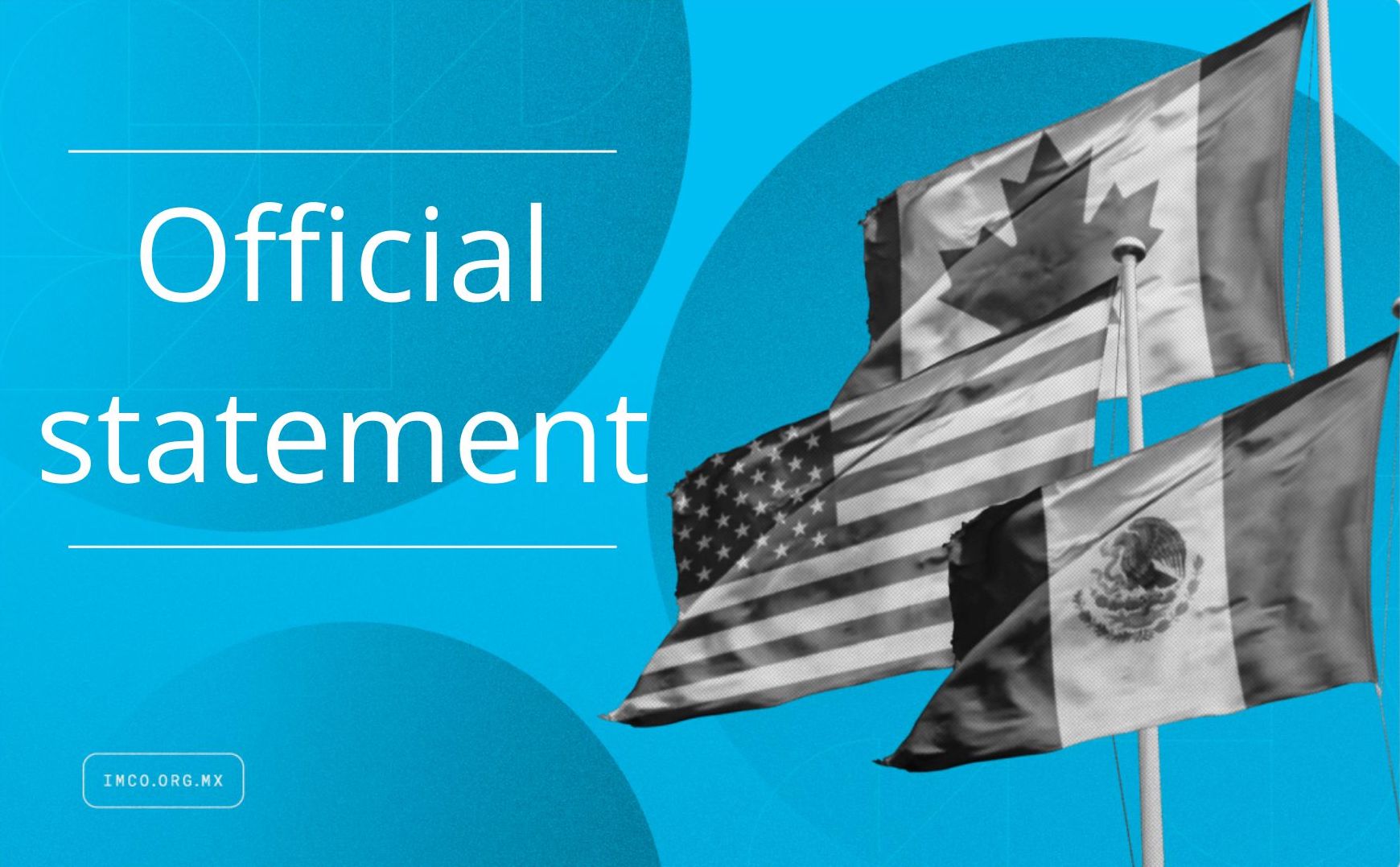
Faced with tariffs, Mexico and Canada should bet on trade openness: IMCO
The imposition of tariffs—25% on products from Mexico and Canada and 10% on those from China—announced on February 1 by President Donald Trump is unprecedented in the history of North American trade relations.
In response to the tariffs set to take effect on February 4, Mexico and Canada have announced retaliatory measures on goods originating from the United States. Canada will impose a 25% tariff on $30 billion (USD) of U.S. imports and an additional $125 billion within 21 days, along with restrictions on access to critical minerals. Mexico, for now, has not specified the details of the measures that will be taken.
In a turbulent global environment, the three partners and allies should pursue deeper integration rather than protectionism. The Mexican Institute for Competitiveness (IMCO) advocates for free trade and economic freedom as drivers of competitiveness and prosperity for the three countries. This region consists of the world’s second-largest exporter, as well as the ninth- and eleventh-largest (the United States, Mexico, and Canada, respectively). Issues such as migration and the fentanyl crisis can only be resolved through greater cooperation between the three nations, not by undermining trust and reversing three decades of cooperation.
North American economic integration has driven growth and competitiveness, benefiting all three countries. The imposition of tariffs contradicts both the spirit of the USMCA, a trade agreement designed to ensure free trade and generate certainty among the three nations.
Weakening the bases of the USMCA not only harms the world’s most important economic bloc and reduces its competitiveness against other regions, but also puts jobs at risk, disrupts supply chains, and slows economic growth. Furthermore, the tariffs would negatively affect prices for consumers in all three countries.
The impact of these tariffs will be particularly severe for highly integrated industries in the region, such as the automotive, aerospace, electronics, and agricultural sectors. Any trade barrier would increase production costs and weaken the region’s competitiveness against other markets. For example, in the auto parts sector 57% of U.S. imports consist of products from Mexico or Canada.
Mexico and Canada, along with the U.S. Congress, state governments, businesses, industry chambers, and labor unions, must commit to defending the spirit of openness and regional integration. Transnational issues should be resolved collectively, through greater collaboration, not by building barriers.
IMCO urges the Mexican government to continue dialogue with its USMCA partners to preserve free trade in the region and strengthen the competitiveness of our supply chains and regional economy.
IMCO is a nonpartisan, nonprofit research center dedicated to enriching public decision-making with evidence to advance a fair and inclusive Mexico.
